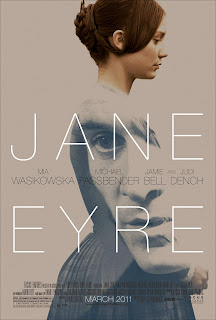Of Human Bondage
W. Somerset Maugham
it was not as i had expected, a touching and polished drama by a hugely popular author. it is indeed touching, but only because it is full of real-life pain and joy, struggle and triumph, confusion and revelation, much as experienced by the author himself. literally and figuratively. the writing is not particularly smooth and elegant; but the narrative is clear and absorbing enough to overcome the lack of style.
the opening chapter is unforgettable: a happy little boy, Phillip, suddenly lost his loving mom and had to move in with his uncle and auntie he did not know: the uncle was cold and detached; his auntie tender but timid. added to the ineffable suffering was his born-with club foot. Phillip Carey managed to grow up, travelled abroad, tried to learn art and then medicine, fell into a wrenching unrequited love, lost his (little) fortune, made and lost friends, and found happiness...eventually, he gained his foothold.
i have read two books by Maugham: this and the Moon and Sixpence. much like how Phillip lived, he wrote with great effort, sincerity, thoughtfulness and passion. life was not a smooth sail, in particular because he was so sensitive and had to struggle more constantly with mental burdens: his stutter and his loss of parents at a very young age. this afforded him a better understanding of and empathy for others, ordinary people with ordinary virtues and limitation. it made his books earthy with humane warmth.
some "earthy" passages:
it is such as he, as little conscious of himself as the bee in a hive, who are the lucky in life, for they have the best chance of happiness: their activities are shared by all, and their pleasures are only pleasures because they are enjoyed in common; you will see them on Whit-Monday dancing on Hampstead Heath, shouting at a football match, or from club windows in Pall Mall cheering a royal procession. It is because of them thatman has been called a social animal. (kindle location 654)
there was no meaning in life, and man by living served no end. It was immaterial whether he was born or not born, whether he lived or ceased to live. life was insignificant and death without consequence. (location 8368).
the will to achieve could not help you and confidence in yourself meant nothing. (location 3645)
the illusion of free will is so strong in my mind that i can't get away from it, but i believe it is only an illusion. but it is an illusion which is one of the strongest motives of my actions. before i do anything i feel that i have choice, and that influences what i do; but afterwards, when the thing is done, i believe that it was inevitable from all eternity. (location 5131)
Tuesday, January 10, 2012
Thursday, January 05, 2012
Jane's ladies and Jane Eyre revisited
Pride and Prejudice
Sense and Sensibility
Emma
by Jane Austen
Jane Eyre
by Charlotte Bronte
Loved all three books by Austen, with Pride and Prejudice most satisfying. Auntie Jane's ladies are beautiful, idealistic, independent, witty and worldly; her writing, with biting humor, displays a seemingly realistic picture of the old British society in the early 19 century: its foolishness, provincialism, and parties, lots of parties. After all the intrigues and confusions, there is a happy ending for all who have fallen in love, thus guaranteeing the ultimate joy of reading.
It's harder to warm up to Jane Eyre than to sympathize with, but she won over this reader with her intelligence, courage and her capacity for love, despite a nightmarish childhood, a humble beginning of youth and the unbearable hardship she endured while running away from Mr. Rochester . Her friendship with Helen Burns was sad but beautiful; that with Diana and Mary was endearing and so ... womanly.
I did not re-read Wuthering Heights by Emily Bronte because its dramatic impression on me decades ago has never been forgotten.
In real life, Austen was a tough lady and Bronte sisters no less so. But what lively and eternally fresh books they have written.
Sense and Sensibility
Emma
by Jane Austen
Jane Eyre
by Charlotte Bronte
Loved all three books by Austen, with Pride and Prejudice most satisfying. Auntie Jane's ladies are beautiful, idealistic, independent, witty and worldly; her writing, with biting humor, displays a seemingly realistic picture of the old British society in the early 19 century: its foolishness, provincialism, and parties, lots of parties. After all the intrigues and confusions, there is a happy ending for all who have fallen in love, thus guaranteeing the ultimate joy of reading.
It's harder to warm up to Jane Eyre than to sympathize with, but she won over this reader with her intelligence, courage and her capacity for love, despite a nightmarish childhood, a humble beginning of youth and the unbearable hardship she endured while running away from Mr. Rochester . Her friendship with Helen Burns was sad but beautiful; that with Diana and Mary was endearing and so ... womanly.
I did not re-read Wuthering Heights by Emily Bronte because its dramatic impression on me decades ago has never been forgotten.
In real life, Austen was a tough lady and Bronte sisters no less so. But what lively and eternally fresh books they have written.
Subscribe to:
Comments (Atom)

